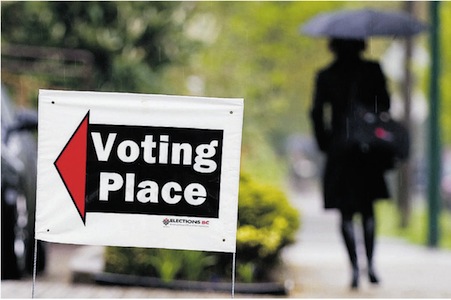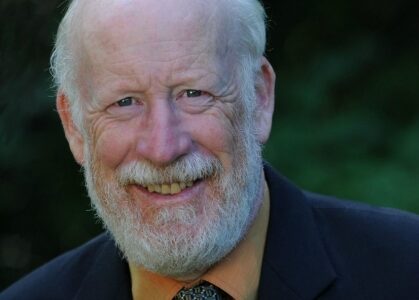Mungall accuses Liberals of gerrymandering over changes to Electoral Boundaries Act
Nelson-Creston NDP MLA, Michelle Mungall is sounding the alarm about a new bill put forward by the Liberal government that would see changes made to the laws governing the Electoral Boundaries Commission and electoral ridings in the Kootenays.
Bill 2 – 2014 Electoral Boundaries Commission Amendment Act, 2014, recently underwent debate in the Legislature and if passed would effectively freeze the number of BC Interior ridings in four regions at their current numbers – instead of having the number of ridings in the regions re-evaluated every eight years based on population by the independent Electoral Boundaries Commission (EBC), as has been the case since the EBC was established in 1982.
The bill singles out 17 ridings in the Cariboo-Thompson, Northern B.C. and the Columbia-Kootenay region, including Nelson-Creston, Kootenay West, Kootenay East and Columbia River – Revelstoke, stating that “each of these regions must not have the number of their electoral districts reduced from the number of electoral districts that currently exist for the region.”
The amendments do not affect the EBC’s role in setting the electoral boundaries, but remove the part of its mandate that would let it reduce the number of electoral districts in the region.
While noting that she is fully in favour of rural representation and thinks it’s important to keep four MLAs for the Kootenay-Columbia region, Mungall says the government is effectively manipulating the electoral boundaries for their own gain by implementing changes to the EBC Act that she says would protect rural seats held by the Liberals.
“They’ve selected 17 rural ridings they want to protect from having any analysis for redistribution or if they’re meeting the requirements for population or not,” Mungall says.
“Why just pick 17 rural ridings? It’s because they have 11 of those 17 seats.”
Here in the Kootenays, where the NDP regularly hold three of the four ridings, Mungall notes that the last redistribution proposed the region be reduced to three ridings – which could result in the loss of a seat for Kootenay East Liberal MLA, Bill Bennett and an NDP sweep of the region.
“I look at this and see a Liberal government interfering with an independent electoral body,” she says. “They’re trying to gerrymander the electoral boundaries for their own political gain.
“The balance between representation by region and representation by population is determined at the Electoral Boundaries Commission in consultation with the public, not by the government of the day. The government of the day is in conflict of interest.”
Minimal public consultation
Mungall adds that changes to the EBC effectively change province’s constitution, and are being made with very little public consultation, compared to the extensive public consultation process undertaken by the EBC.
The province published a white paper on Nov. 14, 2013 outlining the rationale and proposed changes and requested public comment via e-mail. The bill received a total of 63 comments by the Jan. 14, 2014 deadline.
A review of the comments received by The Nelson Daily suggests the majority of submissions stated an opposition to the changes or disagreement with the government’s rationale, while many asked for more time to provide feedback and a more extensive public consultation on the changes.
According to background information provided by the Ministry of Justice, the public feedback provided varied significantly from comments that contained a few sentences to an extensive statistical analysis.
The Ministry also noted that the goal of the white paper was to make sure the public was informed about the changes, and that while government welcomed feedback, and considered public responses before introducing the legislation – but none of the responses persuaded the government to change the proposed amendments.
Government protecting rural representation: Anton
Minister of Justice, Susan Anton says Mungall’s claims ring hollow and the province is protecting representation for residents of rural B.C.
“Gerrymandering is a serious accusation and it is without foundation in regard to this bill,” Anton said in a statement issued to The Nelson Daily.
“The Liberal Party won a majority of seats across the whole province; 49 out of 85 in the last election. That’s almost exactly the same proportion of seats that the party won in the three regions addressed in Bill 2.
“In the 2009 election, the two main political parties were very even in terms of the 17 districts in these three regions; nine voted Liberal and eight voted NDP. And in the Kootenay region in particular, the NDP regularly wins three out of four seats. There is clearly no advantage to the governing party created by this bill.”
Instead, the minister says legislation aims to level the playing field for representation in the province.
“The proposed legislation would preserve the current number of electoral districts in the northern and rural regions that are most at risk of losing representation in the legislature,” Anton explains.
“These regions have the greatest number of large, sparsely populated electoral districts that are challenging for a single MLA to represent.
“The approach we’re taking allows the Electoral Boundaries Commission to adjust boundaries for specific districts within the region, helping to balance population. Ultimately it’s not the governing party that will be proposing the electoral boundaries in these regions – it will be the independent boundaries commission.”
























Comments